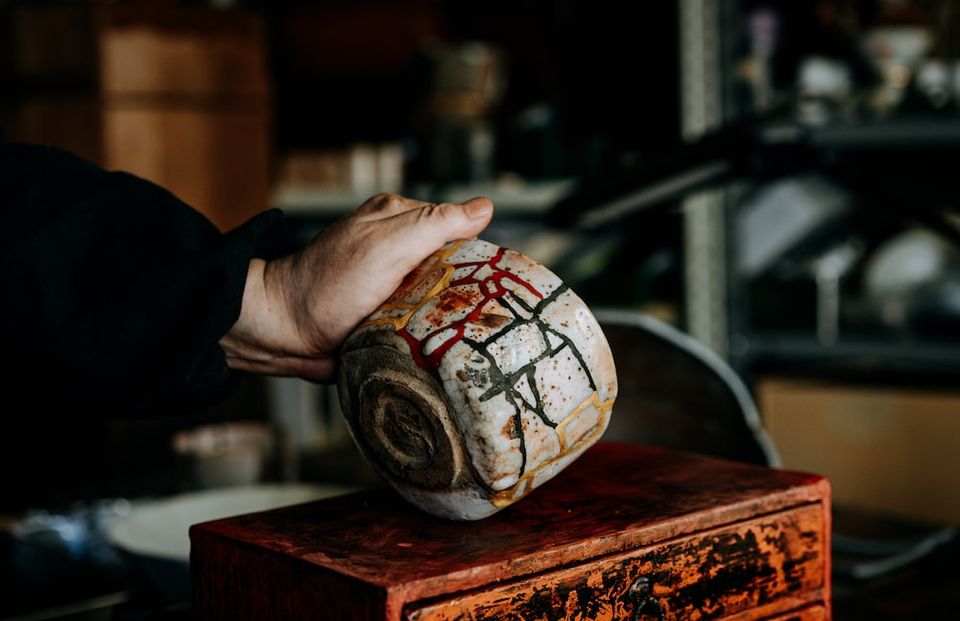16. You’ve come a long way, baby

I’ve just finished Mastery by Robert Greene. It explains how people who achieve true innovation—Mozart, Einstein, Proust—do it as a culmination of experiences. It’s not just the 10,000 hours of practice as name-dropped from Malcolm Gladwell, but more like 20,000 hours, even more than 30,000. This extra time gives them the ‘unconscious competence’ that can only be achieved over time. Beyond that, they often combine deliberate practice (John Coltrane and Mozart soaking up different musical styles), astute self-reflection (Benjamin Franklin getting over his unworldliness and thus propensity to be ripped off by observation and understanding people’s motivations) and seeking and then if needed discarding mentors (Michael Faraday impressing and learning from the chemist Humphry Davy before finally going his own way). More than anything, there’s a sense of meandering but also being prepared to go one’s own way rather than follow the crowd. Some of the stories show resilience against either racism (Zora Neale Hurston) or classism (John Keats), but above all, perseverance.
It’s vindicated some of my feelings about craft—as the old adage goes, ‘you can’t make a baby with 9 women and 1 month’—but makes me wonder how I proceed, particularly as a mentor and manager. How to explain to, say, an ambitious 20-something, that as much as they want to rush into leadership that it may give them problems with their practice later? How do we talk about the arcs of peoples careers?
This month in digital government and design
A recent journal article based on observing the UK Policy Lab in 2019 suggests that much of Policy Lab’s work hinges on creative and collaborative reflective practice. (Ingenta Connect)
As someone who often opens my work calendar to see a wall of meetings, I’d love there to be fewer of them. Turns out, there’s now research showing that fewer meetings means more productivity. (HBR)
Michol Aterm synthesises years of research into 3 common user needs for NHS patients (Twitter)
Steve Messer suggests that alpha is discovery. I agree with his point that teams can get stuck in discovery far too long, and would love to see more government services see alpha as a time to test risky assumptions out rather than just refine the online application form… (Harsh Browns)
The GOV.UK service manual has new guidance on meeting and delivering policy intent. (GOV.UK)
Martin Jordan and Annie Streater of the Cabinet Office’s Central Digital and Data Office (CDDO) have published 10 tips for working with a service designer. (GOV.UK)
Co-design is quickly becoming the new service design in being oft-talked about but not understood. Luckily Australia-based co-design practitionerEmma Bloomkamp is setting up a co-design community of practice. (Medium)
Meanwhile, over in the USA, the Beck Centre at Georgetown University and Rosenfeld Media have set up the Civic Design Library. (Civic Design Library)
Museums are becoming increasingly thoughtful about allowing for access needs and neurodiversity. (The New York Times - gifted from me so it won’t use up your 10-a-month reading limit!)
The adage goes, ‘you can’t be what you can’t see’. And that includes images. Luckily, Better Allies has compiled a list of stock images sites that are more inclusive and diverse. Some are paid but some are free. (Better Allies).
According to a new report, leading in the public sector requires sense-making, connecting and shaping; enabled by political support, new managers and the creation of new organisations. (UCL, via Thea Snow)
Matt Knight has created a 10 point checklist to check the health health of your digital team. (iterate.gov.uk)
I recently discovered Lizzie Bruce’s ‘Why we need more user-centred design training options’ and was vigorously nodding along in agreement. (Medium)
Elizabeth Buie has created some helpful guidance for public sector organisations to create an accessibility statement. (Nexer Digital)
People love to hate on Microsoft Teams (it does turn my Macbook into a personal heater). However, Tessa Davis gives 10 ways to make Teams a lot easier to use (Twitter).
One designer found a way to get better at saying no to things (Twitter)
Miscellany
As someone who only uses streaming services, I realise that I never experience the serendipity of stumbling on a random episode of a syndicated show. For Seinfeld fans at least, you can relive this with a 24/7 streaming site of episodes of Seinfeld. Disclaimer: I have no idea how this is legal. ( watchseinfeld.net)
Speaking of nostalgia, video game players of a certain era may remember easter eggs such as konami codes. (And even websites, I was shown how a konami code on a particular New Zealand department store website, revealed a homage to, of all people, Craig David). It turns out that some of the original video game easter eggs were actually developers trying to get credited for their work. (The Hustle)
RIP Gilbert Gottfreid - for 90s kids, the voice of Iago in Aladdin, but also a top troll on Celebrity Squares.
To my Kiwi followers, happy feijoa season—aka ‘take my feijoas’ season! Caution: sweary. (Twitter)
And finally, staying with Nuzild, NZ PM Jacinda Arden visiting Japan led to a moment that seems straight out a strange fever dream. (Twitter)
Until next time,
Vicky
Member discussion